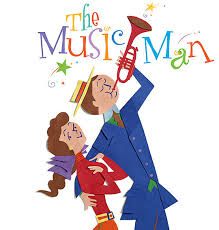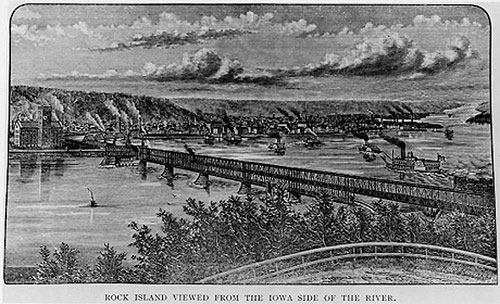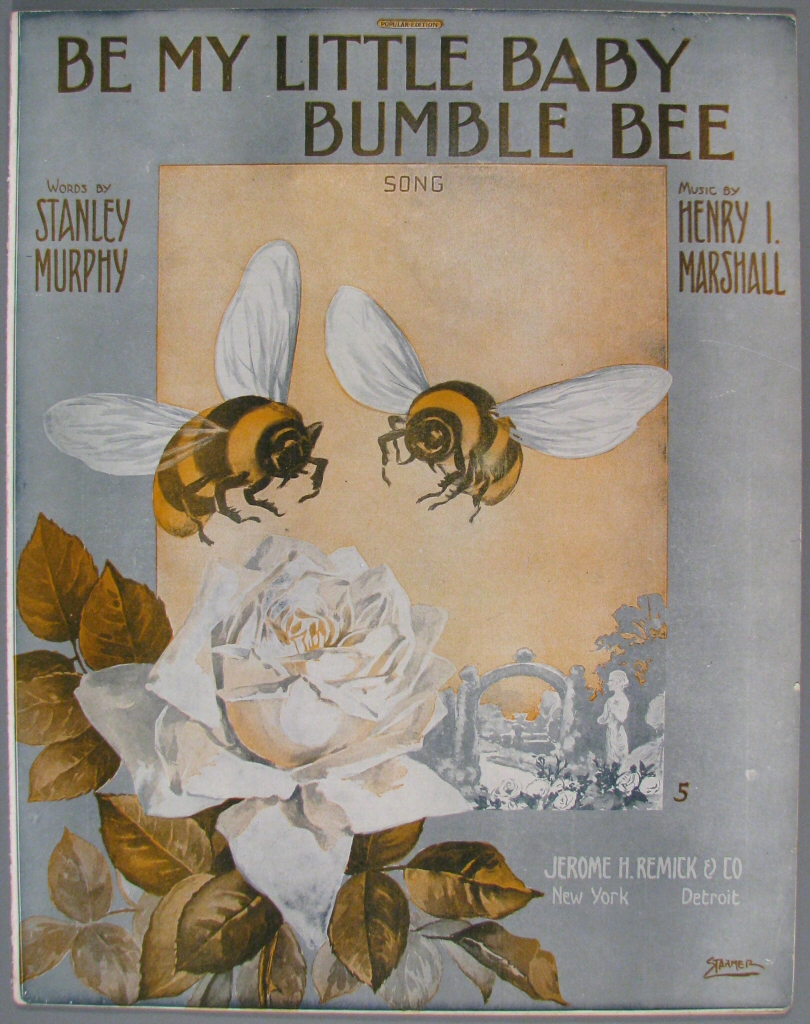-------------------------------------------------------------------------------------------------------
-------------------------------------------------------------------------------------------------------
4
Date originally composed
-------------------------------------------------------------------------------------------------------
-------------------------------------------------------------------------------------------------------
5
If this musical is based on
an historical event or literary story
please name it and also identify
the name of the author if applicable
5A
Event or Story
5B
Author (If applicable)
Based on a story by
MEREDITH WILLSON and
FRANKLIN LACEY
If this musical is based on
an historical event or literary story
please name it and also identify
the name of the author if applicable
5A
Event or Story
5B
Author (If applicable)
Based on a story by
MEREDITH WILLSON and
FRANKLIN LACEY

-------------------------------------------------------------------------------------------------------
-------------------------------------------------------------------------------------------------------
6
What the story is about
Confidence man Harold Hill arrives at staid River
City intending to cheat the community with his
standard scam of offering to equip and train a
boy's marching band, then skip town with the
money since he has no music skill anyway.
Things go awry when he falls for a librarian he
tries to divert from exposing him while he
inadvertently enriches, he transforms a dull
town into a swinging and dancing one; the
town with a love of music.
-------------------------------------------------------------------------------------------------------
-------------------------------------------------------------------------------------------------------
7A
Where the story takes place
(ex: name of city, country, etc.)
River City (fictional town) in Iowa
7B
Possible clues in the movie
that tell you this location
(ex: famous landmarks, speech accents, etc.)
This musical shows small town life in the U.S. at the turn
of the 20th century with a setting of Iowa scenes.
-------------------------------------------------------------------------------------------------------
-------------------------------------------------------------------------------------------------------
8
Setting of the story
(ex: farm, big city, slums,
affluent neighborhood, etc.)
based partly on Willson's own birthplace,
The "river" in River City is probably the
Mississippi, near Davenport, Iowa
 |
| Mississippi River near Davenport, Iowa |
(the Rock Island conductor's announcing "River City,
Ioway! Cigarettes illegal in this state") implies
-------------------------------------------------------------------------------------------------------
-------------------------------------------------------------------------------------------------------
9A
Time frame the story takes place in
(historical time period, era, or date)
This story takes place in 1912 - the adoption
of the 48-star US flag is mentioned.
(Mason City’s first high school band began in 1912,
the year in which The Music Man takes place.
Meredith played piccolo in this band. The band had
2 clarinets, 2 cornets, 1 euphonium, 1 tuba, 1 snare
drum, 1 bass drum 1trombone and 1 alto sax.)
Possible clues in the movie that
tell you the time frame
(ex: style of clothes and hair, types of
transportation, modern inventions, etc.)
Back in mid 1900's, entertainment wasn't very
graphic. They mostly had books and the radio
for entertainment. Songs were printed on sheets
of paper, so if you had the certain instruments
you could play it. Most families had a few
members (if not the entire family) who could
play one or more musical instruments.
Popular song titles in 1912 were:
-------------------------------------------------------------------------------------------------------
-------------------------------------------------------------------------------------------------------
10
Names of main characters
and short descriptions of each
(ex: John Smith-salesman,
Mary Smith-wife of John Smith, etc.)
Harold Hill
He is a traveling band instrument salesman/con man,
who cannot read music or play an instrument;
falls for Marian. (The name "Harold" for Harold Hill
Marian Paroo
The local librarian and town’s piano teacher
who is skeptical of Harold Hill‘s scheme.
She is a single woman ("old maid") known for
being very intelligent; falls for Harold Hill.
(Marian Paroo is based on Willson's mother,
complete with her music lessons and
love of knowledge and culture plus Willson's
Marcellus Washburn
Harold’s friend from years past, a former con-man,
who now lives in River City, dating his boss's (Mr.
Squires') niece, Ethel Toffelmier (The character
Eulalie Mackechnie Shinn
She is the mayor's wife who prides herself on
her community service with the newly created
(by Harold) "Ladies' Auxiliary Committee on
the Dance" (whom Harold appoints as the
Mayor George Shinn
He is the Mayor of River City, Iowa; a blustery
proud politician whose business (owner of the
billiard parlor) is being ruined by Harold Hill.
Mrs. Paroo
Marian and Winthrop‘s mother.
She is a caring and devoted Irish mother
who wants nothing but the best for her children.
She is afraid Marion will never get married.
(Marian's mother in the show is based on a
German woman who would come to clean
the Willson's house every Saturday.)
Winthrop Paroo
The younger brother of Marian and afflicted with a lisp so
(especially after the death of his father) he hardly ever talks.
His friendship with Harold helps him to overcome his
father's death and start speaking again. (Winthrop was
Pick-a-Little Ladies
Eulalie's four gossipy friends: Alma Hix, Mrs.
Squires, Ethel Toffelmier and Maud Dunlop.
A group of four bickering school board members (Olin Britt,
Oliver Hix, Ewart Dunlop and Jacey Squires), who until
Harold Hill taught them how to sing, were the worst of
enemies. (The barbershop quartet in The Music Man
Secondary characters
Charlie Cowell
A rival salesman who is on a mission
to expose Harold Hill‘s scheme.
Tommy Djilas
He is the boy from the wrong side of the tracks. He
is secretly dating the Mayor‘s daughter, Zaneeta.
Zaneeta Shinn
Oldest daughter of Mayor Shinn
who has a crush on Tommy Djilas.
Amaryllis
A young piano student of Marian Paroo
who also has a crush on Winthrop.
-------------------------------------------------------------------------------------------------------
-------------------------------------------------------------------------------------------------------
11
Inner messages within the story (ex: morals,
ethics, etc.) that have moral or social
significance. Explain the message you think
the author of the movie is trying to display:
Romantic Longings:
How does love affect Professor Hill?
Questions of honor and trust
Cultural Assumptions

Like Harold Hill, Marian Paroo is also
an outsider, but within her own community.
Is she a spinster? A snob? A romantic? A
skeptic? A loner? None of these is a
complete description, but her society offers
many judgements of Marian, and of
women’s roles…

Importance of music in our lives In the United
States and in England, brass bands played
an important role in bringing refinement and
civilization to small towns the civilizing
influence of marching bands in rural England
and the U.S.. that were otherwise cutoff from
cultural resources.

Bubbling just beneath the surface of Meredith
Willson's tale of Harold and his dubious
business practices lies a world of budding
romances, class divisions (as seen, for
example, in Mayor Shinn’s running battle with
"wild kids from the wrong side a'town"), cultural
tensions (do Balzac and Chaucer really belong
on the library's bookshelves?) and a fascination
with the world beyond River City's borders.
How exotic and exciting.)

One of the lasting impressions The Music Man
shares is how participation in the arts can bring
a community together. Whether it is the
squabbling School Board members who
discover they form the perfect barbershop
quartet, the delinquent whose enterprising
ingenuity finds a new outlet, or the withdrawn
young boy exploding with enthusiasm about his
new coronet, the challenges and rewards of
performing music inspire and galvanize River City.
-------------------------------------------------------------------------------------------------------
-------------------------------------------------------------------------------------------------------
12A
Personal opinion (your enjoyment factor;
why you liked or disliked the musical)
What moments of this production
were memorable for you?
List the three things you liked
most about the show and why.
12B
Personal opinion on the
quality of the artistry in this musical
(ex: how well acted, quality of the singing voice(s),
cinematography, memorable melodies, etc.)
What did you think of the set, lights, and costumes?
How did all those elements help tell the story?
How did the Set designer define each location?
How did the Light designer help set the mood?
How did the Costume designer
help define each character?
-------------------------------------------------------------------------------------------------------
-------------------------------------------------------------------------------------------------------
13
Song titles
(HINT: Listen for repeated words or phrases in the
song and make an educated guess of the name
of the song if you don’t know it.)
Along the way, Willson wrote 40 songs for The Music
Man. 22 of them were cut. They include "You Don't
Have to Kiss Me Goodnight" (sung by Tommy to
Zaneeta), a partner song for "My White Knight"
harmonizing with "A Sadder but Wiser Girl," "Iowuh"
that had a Native American beat, and "Blessings"
which was written during the out-of-town run in
Philadelphia, but was dropped. Also dropped were
"I’ve Already Started to Try to Figure Out a Way to
Work To Try to Get to You," "I Found a Horseshoe,"
"My Baby," "Tomorrow," "Chicago," and a salesman's
version of "Ya Got Trouble."

SONG 1
http://s368310519.initial-website.com/app/download/4957856004/Charlie+Audition+Material.pdf





The energy, adventure and surprise of what the
train will bring to River City is evoked by a
uniquely innovative opening number. Defying
many conventional expectations for the first song
to begin a musical, "Rock Island" features lyrics
spoken in rhythm without melody, almost a
precursor to a sound more familiar today in rap
and hip-hop; in this case the rhythm evokes the
motion of the train and the overlapping
conversational buzz of its passengers.
Professor Hill arrives in River City,
Iowa on the Rock Island Railroad.
(Students will listen to the opening song and
describing what they "saw" as they were listening
to the music and lyrics.) Several salesmen are
passing through town on a train, spending their
time arguing about the ins and outs of the business.
Iowa on the Rock Island Railroad.
(Students will listen to the opening song and
describing what they "saw" as they were listening
to the music and lyrics.) Several salesmen are
passing through town on a train, spending their
time arguing about the ins and outs of the business.
The life of a traveling salesman in the 19th century
was far from romantic.
Transportation generally consisted of
a day coach on a train
or a horse and buggy

provided by the local livery stable
for local travel, or later
the Model T car.
Many salesmen were away from their homes for
months on end. But a change in America's buying
culture was underway. Henry Ford and his methods
of mass production had paved the way for technology
in other industries. America's demand for consumer
goods was skyrocketing and the culture of
consumerism was born. By the 1920's, chain stores
and mail order businesses had pretty much diminished
the ranks of the traveling salesmen. They sing of their
concerns as they ride the Rock Island Rail line in the
opening number of The Music Man.
As the train pulls into the station our hero, Harold Hill,
leaves the group in order to give Iowa a try. A musical
device Willson uses is rhythmic talking. In the opening
scene, Rock Island sets up the salesmen's control and
command of the language, and creates the sound and
rhythm of the train. Dialogue of travelling salesmen and
the musical background beautifully simulate the
bouncy rhythm of the jogging train.
bouncy rhythm of the jogging train.
.jpg) |
| http://www.cfa.arizona.edu/theatreartsoutreach/files/ theatreartsoutreach/the-music-man-study-guide2.pdf |
Opening Scene (1962)
"Rock Island"
Opening Scene (2003)
http://www.youtube.com/watch?v=GFRvQ2hDWDk&feature
=related&safety_mode=true&persist_safety_mode=1&safe=active
=related&safety_mode=true&persist_safety_mode=1&safe=active

SONG 2
"Iowa Stubborn"
The citizens of River City come into the Town
The citizens of River City come into the Town
Square and introduce themselves to Professor
Hill and sing about their stubborn Iowan ways.
The lyrics convey their polite, reserved and stoic
demeanor, as well as their special "chip on the
shoulder attitude." This sets the temperament of
the town giving Harold a big obstacle to overcome.
it is a relaxed "soft-shoe" (or schottishe) sung by
the citizens of River City, Iowa. Its lyrics convey
their polite, reserved and stoic demeanor, as well
as their special "chip on the shoulder attitude
[they've] never been without that [they] recall."
For example:
"We can be cold as our falling thermometers in
December if you ask about our weather in July.
And we're so by God stubborn we can stand
touchin' noses for a week at a time, and
never see Eye to Eye."
"Iowa Stubborn"
(1962)
"Iowa Stubborn"
(1962)
 |
| American Gothic Couple |
"Iowa Stubborn"
(2003)
"Piano Lesson"
https://www.youtube.com/watch?v=zzuMDWDV2xc

(2003)
&safety_mode=true&persist_safety_mode=1&safe=active

SONG 3
"Ya Got Trouble"
http://sprott.physics.wisc.edu/mscd/trouble.pdf
River City, Iowa to fund his idea for a boys'
stubborn citizens are reluctant to do this,
and the song is his description of what could
happen should the citizens choose the pool hall.
Realizing that he won't be able to use his regular
routine on these people, Harold decides to use
one of their own activities against them… pool.
The city's Mayor has just opened up a new pool
parlor and Harold captures the town's attention
by telling them they've got trouble… right here in
River City! With a capital 'T' and that rhymes with
'P' and that stands for Pool.. The stage is set for
Harold to reveal his sales pitch.
"Ya Got Trouble"
(1962)
"Ya Got Trouble"
(1962)
http://www.youtube.com/watch?v=LI_Oe-jtgdI&feature=
relmfu&safety_mode=true&persist_safety_mode=1&safe=active
relmfu&safety_mode=true&persist_safety_mode=1&safe=active
 |
| http://topfamousquotes.com/meredith-willson-quotes/ |
"If You Don't Mind
My Saying So"
(1962)
"Piano Lesson"
"If You Don't Mind
My Saying So"
(2003)
SONG 5
"Good Night My Someone"
"Goodnight, My Someone" is the same tune, in waltz
time, as the march-tempo "Seventy-Six Trombones."
"Goodnight My Someone"
(1962)
https://www.youtube.com/watch?v=CC33O52pGUg
"Goodnight My Someone"
Karaoke
(1962)
https://www.youtube.com/watch?v=CC33O52pGUg
"Goodnight My Someone"
Karaoke
SONG 6
"Seventy-Six Trombones"
Harold (76 Trombones) and Marian (Goodnight,
My Someone), are both built on the same melody.
Goodnight My Someone is a gentle waltz and
Seventy-Six Trombones is such a hearty march,
that we don’t notice they share the same melody.
This works on a subliminal level, as we hear
unconsciously that these two characters sound
like they belong together. The songs "Seventy-Six
Trombones" and "Goodnight My Someone" are
the same tune arranged in different time signatures.

SONG 7
"Sincere"
"Sincere"
(1962)
http://www.youtube.com/watch?v=nO0DFttQoJc&feature=
related&safety_mode=true&persist_safety_mode=1&safe=active

SONG 8
"The Sadder-But-Wiser Girl"
http://www.angelfire.com/musicals/thespia/mm/mmsongs.html#girl
(1962)
http://www.youtube.com/watch?v=nO0DFttQoJc&feature=
related&safety_mode=true&persist_safety_mode=1&safe=active
SONG 8
"The Sadder-But-Wiser Girl"
http://www.angelfire.com/musicals/thespia/mm/mmsongs.html#girl
"The Sadder-But-
Wiser Girl"
(1962)
"The Sadder-But-
Wiser Girl"
(2003)
https://www.youtube.com/watch?v=8HbFW0yHvLc
https://www.youtube.com/watch?v=jpfGK8NXodY

SONG 9
"Pick-a-Little, Talk-a-Little"
"Good Night, Ladies"
Wiser Girl"
(1962)
Wiser Girl"
(2003)
https://www.youtube.com/watch?v=8HbFW0yHvLc
https://www.youtube.com/watch?v=jpfGK8NXodY
SONG 9
"Pick-a-Little, Talk-a-Little"
"Good Night, Ladies"
Pick-a-Little, Talk-a-Little"
"Good Night, Ladies"
(1962)
"Good Night, Ladies"
(1962)
_mode=true&persist_safety_mode=1&safe=active
https://www.youtube.com/watch?v=rkY09GQoJGo
.jpg)
https://www.youtube.com/watch?v=rkY09GQoJGo
.jpg)
Pick-a-Little Talk-a-Little
Performed by the Muppets
https://www.youtube.com/watch?t=39&v=HtPyq3z9XYY


https://www.youtube.com/watch?t=39&v=HtPyq3z9XYY


SONG 10
SONG 11
"My White Knight"
("Being in Love")
"Being in Love"
(1962)
"My White Knight"
("Being in Love")
"Being in Love"
(1962)
_mode=true&persist_safety_mode=1&safe=active


SONG 12
http://s368310519.initial-website.com/app/download/4957746304/
Winthrop+Audition+Material+-+Wells+Fargo+Wagon.pdf
Winthrop+Audition+Material+-+Wells+Fargo+Wagon.pdf
"The Wells Fargo Wagon"
(2003)
(2003)
_mode=true&persist_safety_mode=1&safe=active

SONG 13
"It's You"

SONG 14
"Shipoopi"
The folk dancing and character relationships
embody the shifts in the stubborn Iowa nature.
Compare the songs: Shipoopi and Iowa Stubborn.
"Shipoopi"
(1962)
https://www.youtube.com/watch?v=9Jj622vbrrU
"Shipoopi"
(2003)
https://www.youtube.com/watch?v=Pj3mFkn07Iw#t=17

SONG 13
"It's You"

SONG 14
"Shipoopi"
The folk dancing and character relationships
embody the shifts in the stubborn Iowa nature.
Compare the songs: Shipoopi and Iowa Stubborn.
"Shipoopi"
(1962)
https://www.youtube.com/watch?v=9Jj622vbrrU
"Shipoopi"
(2003)
https://www.youtube.com/watch?v=Pj3mFkn07Iw#t=17

REPRISE 01
"Pick-a-Little, Talk-a-Little"
(Reprise)
SONG 15
"Lida Rose"
and "Will I Ever Tell You," sung first separatelyand then simultaneously, are among the rare
examples of Broadway counterpoint–songs with
separate lyrics and separate melodies that
harmonize and are designed to
be sung together.
 |
and Lida was Rosalie's sister, Meredith's favorite aunt.
|
SONG 16
"Lida Rose" and
Each song is first sung separately and thensimultaneously. These songs are among the
rare examples of Broadway counterpoint–songs
with separate lyrics and separate melodies that
harmonize and are designed to be sung together.
"Lida Rose"
"Will I Ever Tell You"
(1962)
SONG 17
"Gary, Indiana"
http://s368310519.initial-website.com/app/download/4957754504/
Winthrop+Audition+Material+-+Gary%2C+Indiana.pdf
Winthrop+Audition+Material+-+Gary%2C+Indiana.pdf
"Gary, Indiana"
(1962)

SONG 18
(1962)

SONG 18
"Till There Was You"


"Till There Was You"
(1962)
The song "Till There Was You"
was covered by The Beatles
"Till There Was You"
Paul McCartney, Vocalist
in 1963 on their second album With the Beatles.
It is the only show tune that The Beatles covered,
and one of the songs they performed on the

Reprise 02
"Seventy-Six Trombones"
"Goodnight, My Someone"
(Reprise)
"Goodnight, My Someone"
"Seventy-Six Trombones"
(1962)

Reprise 03
"Till There Was You"
(Reprise)
FINALE

"Seventy-Six Trombones"
"Finale"
(1962)

Music Man Overture
Thomas M Davis and Hans
Hagan Orchestra
(Crown Records)
https://www.youtube.com/watch?v=mLJknd9UJks


















.jpg)


.jpg)
.jpg)

.jpg)
.jpg)

